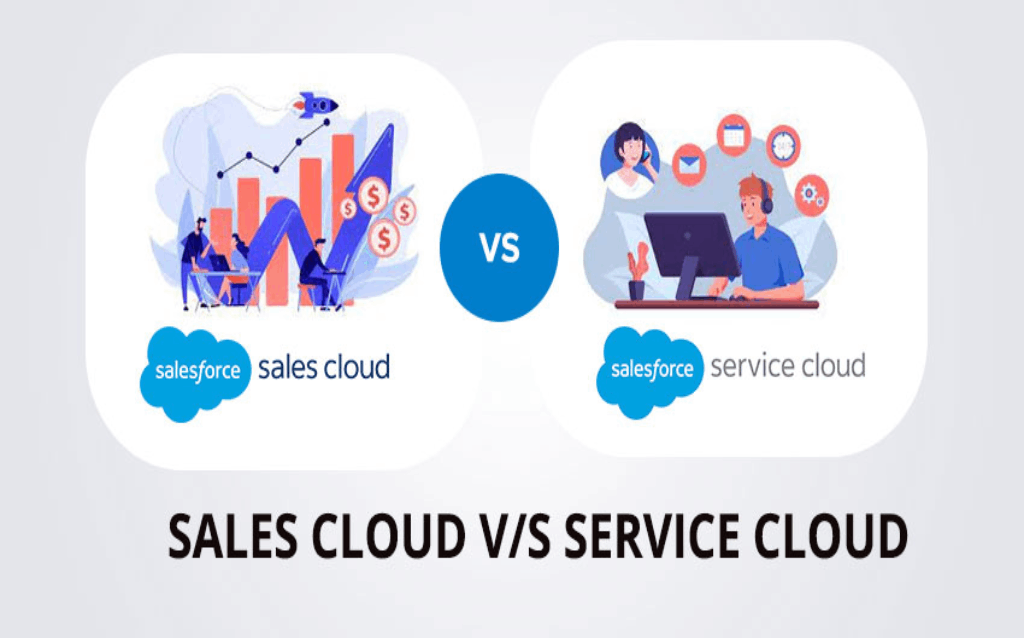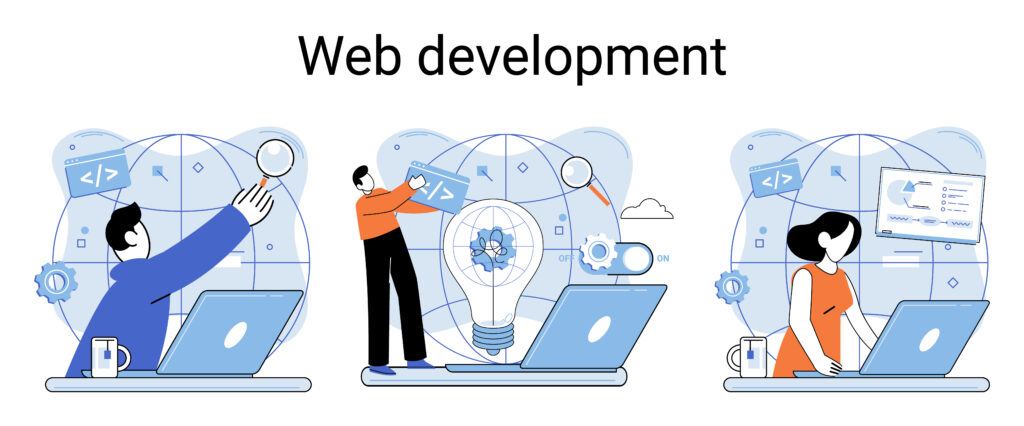Sales Cloud and Service Cloud are two of the most popular Salesforce products used by enterprises around the world. Owing to its ability to add efficiency and improve productivity, Salesforce development companies in India are in great demand. While Sales Cloud caters to sales functions, the Service Cloud aims to provide customer service solutions.
Since both have been built by the core Salesforce platform, there are certain similarities between both the processes. However, they are unique in their own ways and exhibit properties that are geared to improve the functionality of modern organizations.
What is Sales Cloud?
A core Salesforce product, it is primarily designed for automation, management and analysis of sales processes. It caters to sales managers as well as sales representatives. It adds efficiency to tasks and provides tools to seamlessly manage complex operations.
What is Service Cloud?
Service Cloud, on the other hand, is an extremely useful Salesforce product for managing customer service. It not only enhances customer satisfaction but, also plays a crucial role in customer retention. With access to a central database, it allows customer service executives to serve customers faster and avail frequently asked for information without any difficulty.
Features of Sales Cloud and Service Cloud
Sales Cloud and Service Cloud share certain features. But, they also have unique capabilities. Let’s take a look at the specific features of both modules.
Sales Cloud Features:
Here are some of the important features of Sales Cloud.
Account Management: Sales Cloud helps to integrate and manage various business contacts seamlessly. It facilitates account management by ensuring smooth consumer communication and proper maintenance of customer accounts.
Business Reporting: It helps to generate effective and insightful business reports that track strengths and weaknesses of the organization. It highlights progress and provides a detailed overview of identified weaknesses within the system. The Sales Cloud dashboard gives easy access to all reports from anywhere and at any time of the day.
Lead Management: Nurturing prospects is an important driver of sales. To capture prospective leads and convert them into business opportunities is a prime function of the sales team of any company. Sales Cloud helps to streamline lead management by automatically aligning leads to sales representatives based on geography and generates automated follow-up routines for leads. The Web-to-Lead feature is also useful for generating a web form that captures prospects. These features enable greater lead conversion.
Monitoring: For sales processes to proceed smoothly, monitoring the project pipeline is essential. It helps sales representatives to keep track of every step and speed up practices to improve the company’s business.
Apart from these, Sales Cloud has features for work process approvals, file sharing and it incorporates custom apps, a self-service portal, and calendars or events.
Service Cloud Features:
Apart from the aforementioned features of Sales Cloud, Service Cloud has certain additional features. They are:
Service Console: The console helps to organize tasks and helps to streamline customer service processes. It not only gathers information in one place, it also provides the opportunity to access it quickly.
Multiple platforms for resolve customer issues: The Service Cloud can offer customer services over social media without asking them to visit particular websites. Similarly, Chat services also offer immediate assistance. Moreover, due to the availability of data in a central database, customer service executives can resolve queries within moments, making the entire process faster and efficient.
Major Differences
The major differences between Sales Cloud and Service Cloud revolve around the end-users they serve. While Sales Cloud is extremely beneficial for improving sales functions, the Service Cloud is aimed at improving customer service. Salesforce customization in India is quite common and companies of all sizes are opting for personalized solutions.
Conclusion
In its own way, both the Salesforce products are helping small as well as larger businesses to succeed in a competitive environment. Depending on business goals, these can be utilized to create future-ready organizations. Salesforce customization in USA has become quite common and companies of all sizes are opting for personalized solutions with the help of Salesforce consulting companies in USA.












